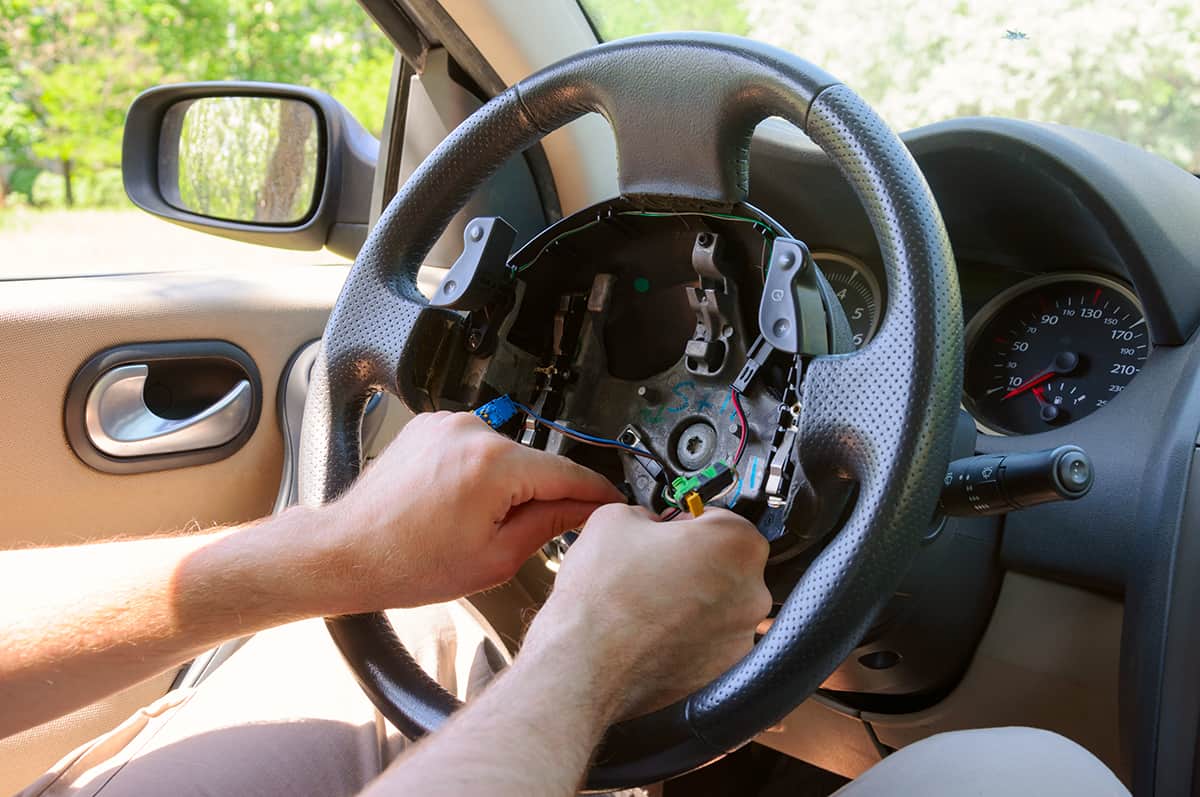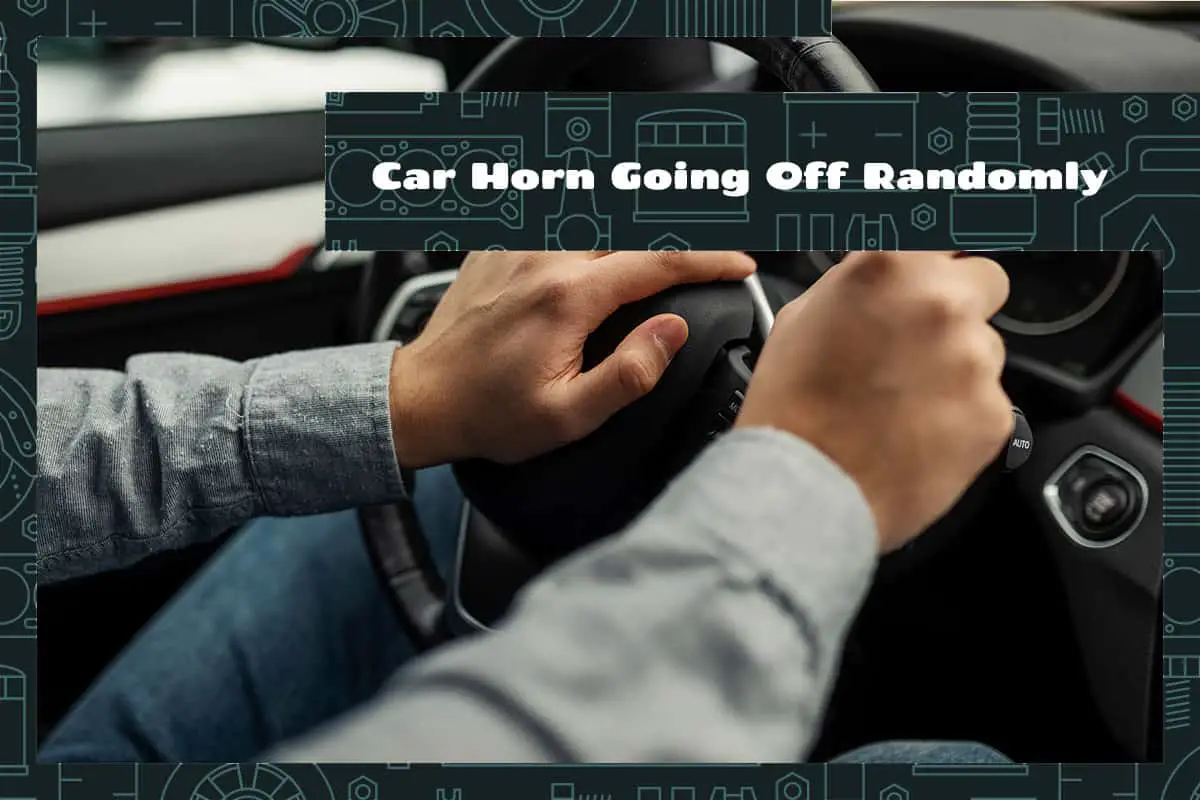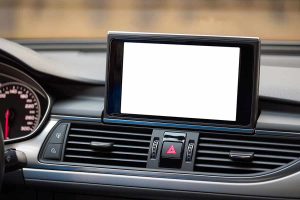Imagine cruising on a sunny day, windows down, favorite song playing, and out of nowhere, your car’s horn decides to join the symphony. Random, unexpected horn blasts aren’t just embarrassing; they can stir a mini heart attack in the unprepared pedestrian or fellow motorist.
A car’s horn might act up due to reasons like faulty relays, short circuits, or even moisture issues. You can try DIY fixes like checking examining these faulty components, inspecting the steering wheel and horn button, or looking for exposed wiring.
This guide will unravel the mystery behind rogue horns. We’ll dissect common culprits and share some DIY fixes.
Why the Car Horn Matters

The car horn might seem like a simple tool: just a button that makes a noise. But dig a little deeper, and it’s clear that this device plays a few essential roles in our day-to-day driving.
1. Safety First
The horn’s primary job? Keeping us safe. When a kid decides to dash across the road or another car doesn’t see you in their blind spot, a quick beep can be the difference between a close call and an accident. It’s a warning signal, alerting others of your presence or drawing attention to potential hazards.
2. Legal Requirements
In many places, having a working horn is a legal requirement. Authorities understand its significance in preventing accidents. So, driving without one can not only be unsafe but can also land you with a hefty fine or a failed vehicle inspection.
Common Causes of a Randomly Sounding Horn
The rogue horn—an automotive quirk that can lead to some rather comedic, albeit annoying, situations. If your car’s horn is suddenly belting out tunes without your permission, there’s likely an underlying reason.
1. Faulty Relay
A relay is a switch that opens or closes circuits electronically. Think of it as a traffic cop directing the flow of electricity. If this relay goes haywire, it might send signals to the horn without being prompted. Over time, relays can wear out or get damaged, especially in older cars. If you find your horn blaring when it shouldn’t, checking the relay might be a good starting point.
2. Worn Out or Damaged Horn Button
The horn button on the steering wheel might look robust, but it’s prone to wear and tear. Imagine pressing a button repeatedly for years. Eventually, it’ll show signs of fatigue. Dirt, grime, or even moisture can creep in, causing shorts or misconnections. And when that happens, the horn can get a mind of its own.
3. Steering Wheel Clock Spring Issues
The clock spring is a coil that maintains an electrical connection to car gadgets like airbags and, you guessed it, the horn. It’s nestled behind the steering wheel, allowing it to turn while maintaining these connections. If it starts to malfunction or wear out, the horn can act unpredictably.
4. Frayed or Exposed Wiring
Cars vibrate, and these vibrations can cause wires to rub against each other or the car’s frame. The result can be frayed or exposed wires. These little culprits can randomly complete the circuit, making your horn go off. Fun fact: rodents sometimes chew on car wires. So, if you’ve parked in a rodent-rich area, they might have thrown a tiny, toothy wrench in your car’s electrical plans.
5. Moisture and Corrosion
If any moisture finds its way into your horn’s components or circuitry, it can lead to short circuits. Additionally, corrosion on connectors or terminals can also mess up the proper functioning. Ever heard a horn sound softer or oddly pitched? Corrosion might be to blame.
6. Malfunctioning Alarm Systems
Modern cars come with alarm systems that use the horn to alert owners of potential threats. But these systems get a tad overzealous and sound off due to glitches or oversensitivity. A misaligned door, a malfunctioning sensor, or even a low battery can send your alarm into panic mode.
DIY Fixes for the Adventurous

Roll up those sleeves, and let’s get a little greasy! Tackling car issues on your own can be daunting, but hey, you’ve got this. If your car horn’s throwing random parties without your say-so, here are some DIY solutions to put it back in line.
1. Inspecting the Horn Relay
Start with the horn relay, often found in the fuse box under the hood or the dashboard. Remove it, give it a shake—if it rattles, that’s bad news. Consider it guilty and replace it with a new one. If the new relay stops the horn’s surprise solos, pat yourself on the back!
2. Check the Horn Button
First, pop off the horn pad or cover from your steering wheel, but do it gently! You’ll see the horn button beneath. If it looks worn, grimy, or out of place, clean it or consider replacing it. The simple act of cleaning and reseating can do wonders.
3. Steering Wheel Clock Spring Check
This sneaky part can be a bit tricky. If you’ve ruled out the simpler causes, it’s time to dive deeper. Remove the steering wheel (with caution!) and inspect the clock spring. Look for any signs of wear or damage. If it’s not behaving, swap it out with a new one.
4. Wiring Woes
Go for a wire hunt. Check for any frayed or exposed wires, especially near the horn and steering column. If you find any, you can patch them up with electrical tape. For a more permanent fix, consider using heat shrink tubing. And if you find evidence of tiny teeth marks? Well, you might have some rodent squatters.
5. Dealing with Dampness
Check for any signs of moisture near the horn, its relay, and wiring. Dry everything off, and consider applying some dielectric grease to protect against future invasions. If corrosion has made a home on any connectors or terminals, a wire brush and some elbow grease should evict it.
6. Taming the Alarm
If you suspect the car alarm is the noisy culprit, try resetting it. Consult your car’s manual for the specific method. It may be as easy as locking and unlocking the car with the key fob a few times. If a specific sensor is acting up, like a door sensor, try cleaning or adjusting it. If it continues its rebellious phase, consider replacing it.
If All Else Fails, Let the Pros Handle It
We don’t doubt your automotive know-how (sort of), but we do think that some things, even a horn acting up, can be too difficult to DIY away. If this describes you in a nutshell, let a professional mechanic take care of your problems.
FAQs
1. Why does my car horn sound weaker than usual?
There could be a few reasons behind the soft-toot dilemma:
- Power Problems: It might be that your car battery’s feeling a bit under the weather. If it’s not giving enough juice, the horn might not have the energy to shout loudly.
- Dirty Business: Sometimes, dirt and debris can sneak into the horn assembly. It’s like trying to sing with a mouthful of crackers. Give it a clean, and you might just clear its throat.
- Aging Ailments: Car horns can wear out with time. It might be time to consider a horn replacement.
2. How much does it typically cost to fix a horn issue?
If you’re up for a little elbow grease and detective work, you might only be out the cost of a new relay or some wire. That’s usually in the ballpark of $10 to $50.
Heading to a mechanic? It’s like asking how long is a piece of string. A simple relay swap could cost you around $50 to $100, with labor included. If you need a new horn altogether, the price can jump from $100 to $200, maybe even more.






